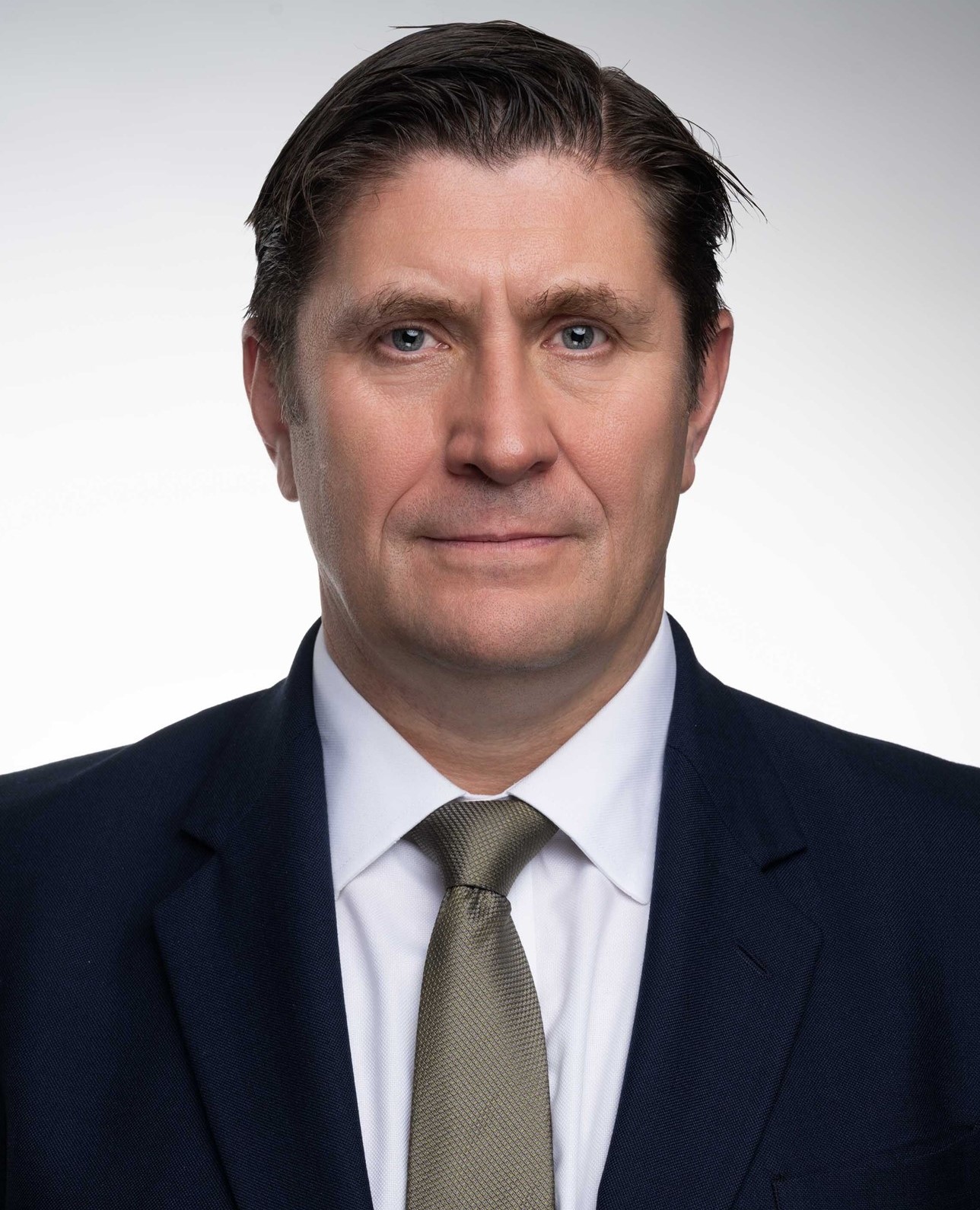Seplat Energy Plc has pledged to pursue a sustainable energy future through a blend of integration, innovation and commitment to an all-inclusive national development just as the company won Nairametrics’ M&A Deal of the Year Award following last year’s successful acquisition of Mobil Producing Nigeria Unlimited (MPNU’s) assets, which has become a game changer for its operations
By Edu Abade
From landmark acquisitions to digital innovations, Environment, Social and Governance (ESG) leadership, Seplat Energy Plc has pledged transformation of Nigeria’s energy landscape and setting new standards for Africa’s indigenous operators.
Following its successful acquisition of Mobil Producing Nigeria Unlimited (MPNU’s) assets, Seplat Energy is poised to redefine Nigeria’s gas future through a blend of integration, innovation and an unwavering commitment to inclusive national development.
Chief Executive Officer of Seplat Energy Plc, Roger Brown, told Forbes Africa and Penresa team in an interview that the company remains absolutely delighted to have completed the MPNU acquisition, which it said, has become a true game-changer for its operations.
“The scale of this transaction is simply monumental. We’re now active in 11 blocks, eight of which we operate directly. The acquisition not only doubled Seplat’s reserves, but also significantly expanded its footprint and diversified its portfolio across upstream and midstream sectors.
 “We have seven onshore blocks and four shallow-water offshore blocks. With this acquisition, we formed Seplat Energy Producing Nigeria Unlimited (SEPNU) and now manage operations that connect seamlessly into three terminals-one offshore and two onshore,” he stated.
“We have seven onshore blocks and four shallow-water offshore blocks. With this acquisition, we formed Seplat Energy Producing Nigeria Unlimited (SEPNU) and now manage operations that connect seamlessly into three terminals-one offshore and two onshore,” he stated.
Speaking further, he said: “This gives us a fully integrated value chain-from the wellhead all the way to export via vessel-with Seplat in full control of operations. Our production has materially increased. We’ve moved from around 50,000 barrels per day to over 120,000 barrels per day. We’re proud to say that our workforce now includes around 1,500 professionals-the vast majority of whom are Nigerians.”
Brown emphasizes that the gas resource in Seplat’s offshore blocks is extraordinary.
“While not all of it is currently classified as proven reserves, we estimate the actual volumes are three times what we’re currently reporting. This gas will be instrumental. It will feed into domestic power generation, industrial uses such as fertilizer and petrochemicals, and LNG-both Nigerian LNG and new floating LNG initiatives.
“This is a major opportunity for Nigeria as we move into a new phase of energy autonomy. It’s not just about exporting oil and gas anymore; it’s about building domestic capacity that supports job creation, industrialization, and long-term economic resilience. Seplat’s strategy remains focused on meeting Nigeria’s specific energy needs.
“You must tailor your energy strategy to where you operate. Nigeria has one of the lowest levels of energy access globally. Affordable, reliable energy is essential for economic development, job creation, manufacturing, education, and healthcare. Gas is the answer for Nigeria’s base load electricity. It’s available 24/7, 365 days a year.”
He disclosed that by the end of this year, the company will have three operational gas processing plants onshore, which are strategically located to serve high-demand areas such as Lagos and Abuja. With the offshore acquisition, the company will soon be capable of processing one billion cubic feet of gas per day. This expanded gas capacity will lower electricity costs and displace expensive and polluting diesel generators.
While gas remains foundational, Seplat is already thinking ahead, he stated, adding: “We do have ambitions in renewable energy and electricity generation, but for now, the biggest opportunities-and the greatest needs-lie in upstream oil and gas and midstream gas processing. At some point, when the time is right, we will take further steps into the electricity space.
“Seplat’s long-term roadmap includes expanding modular solutions that can bring power closer to off-grid communities. We’re exploring modular gas-to-power systems that can be deployed in rural areas. These will play a key role in solving last-mile electricity access problems.
“Technology is central to Seplat’s strategy-both for operational excellence and for reducing environmental impact and in that regard we are aggressively moving to end routine flaring-some years ahead of Nigeria’s national target of 2030. We’ve committed to ending flaring in our onshore operations this year, and we’re working on a roadmap for our offshore assets.
“We’re deploying AI to monitor the integrity of aging infrastructure. Predictive maintenance now guides our operations. We’re also using better drilling technologies, data analytics for seismic analysis, and digital twins for real-time monitoring. Our technology team is continuously scouting and deploying tools that improve efficiency and reduce our carbon footprint.”
The adoption of these tools, he says, forms part of building a smarter, safer and more future-resilient Seplat, noting: “This is about creating a culture of continuous innovation-about using the best available tools to optimize performance while keeping people and the environment safe. Seplat is also investing in people, recognizing that long-term sustainability starts with human capital. We just engaged 50 fresh graduates through our graduate trainee programme out of over 10,000 applicants.
“The talent in Nigeria is remarkable. We want to give them reasons to stay and thrive here. This investment in human capital extends into partnerships with educational institutions and STEAM (Science, Technology, Engineering, Arts and Mathematics) programmes.
“We’re working with universities to help shape curricula that are aligned with the skills we need in the energy industry. It’s not just about hiring-it’s about helping to develop the next generation of Nigerian engineers, geoscientists, economists and tech innovators, among others.”
Strong governance and a commitment to transparency underpin the company’s role in Nigeria’s transformation. “President Bola Tinubu has made clear that attracting foreign direct investment is a national priority. The process we went through with the MPNU acquisition was incredibly detailed and transparent. That’s the kind of diligence international investors expect.” Brown notes the institutional progress being made.
“Two of our board members are now part of NNPCL’s board. These are top-tier professionals—a clear signal that Nigeria is serious about transforming the energy sector. You simply cannot ignore Nigeria-a population of over 200 million heading toward 400 million. By 2050, one in four people on the planet will be African and Nigeria will be central to that story.”
He stresses the global significance of what is happening now. “This is a pivotal moment for Nigeria and the region. The global energy transition will not look the same everywhere. For Africa and for Nigeria specifically, gas is our bridge fuel. And companies like Seplat are showing that indigenous players can lead the way.”
Seplat also continues to deepen its impact through community investment and local partnerships. “Our approach is holistic— from scholarships and education support to healthcare outreach and economic empowerment,” he says.
He also explained that the company’s procurement policies prioritize indigenous businesses. We want value to stay in Nigeria, to strengthen the local economy and create jobs across the value chain. Through its healthcare outreach, Seplat has touched thousands of lives across rural communities with free medical services, maternal health programs, and awareness campaigns. These programmes are often developed in consultation with local leaders to ensure relevance and impact.
“We believe in being a responsible neighbour and a reliable partner. Our goal is to support long-term development that lasts beyond the life of our projects. Environmental stewardship is another cornerstone of Seplat’s ESG commitment. We’re investing not only in flare reduction but also in biodiversity initiatives and conservation programs in the Niger Delta. We understand our responsibility goes far beyond profitability. We’re even exploring the use of renewable energy to power our own operations-a small but symbolic step toward a diversified energy future. Gas is our foundation, but we’re preparing for what comes next,” he added.
Finally, he pointed out that Seplat’s adherence to global standards ensures its long-term sustainability and investor confidence and that as a company listed in Lagos and London exchanges, it operates in compliance with global standards and has robust governance systems, which gives investors confidence.
“We’ve seen real reforms. We’ve seen transparency. We’ve seen changes in leadership, especially at NNPCL that show Nigeria is serious. “Nigeria is open for business, and Seplat is living proof of what’s possible when you lead with belief, strategy and integrity. With bold leadership, a clear vision, and deep national roots, Seplat Energy is not just keeping pace with Nigeria’s Decade of Gas-it’s leading the way,” he said.
Meanwhile, Seplat Energy Plc clinched the ‘M&A Deal of the Year’ award at the Nairametrics Capital Market Choice Awards in Lagos recently.
The award ceremony with the theme: Capital Market as a catalyst for Nigeria’s Economic Transformation was attended by leading companies listed on the Nigerian Exchange Limited (NGX) and other players in the country’s capital market covering banking, energy, insurance, industry, aviation, construction, food & beverages and hospitality, among other sectors.
It would be recalled that Seplat Energy completed the deal on the acquisition of MPNU-renamed Seplat Energy Producing Nigeria Unlimited (SEPNU) from ExxonMobil in December 2024.
The Nairametrics Capital Market Choice Awards is a milestone initiative aimed at reinforcing the company’s commitment to promoting transparency, financial literacy and excellence within Nigeria’s financial ecosystem.
Founder and Chief Analysts at Nairametrics, Ugo Obi-Chukwu, said: “The capital market is home to professionals and organisations that have significantly influenced Nigeria’s financial landscape. The awards initiative is Nairametrics way of recognising and celebrating their impact.
“From strengthening investor confidence to driving corporate governance and market reforms, these players have been instrumental in shaping the market’s evolution. The Capital Market Choice Awards is our way of saying ‘thank you’ while encouraging the continuous pursuit of excellence.”
Seplat Energy was represented at the awards ceremony by the Director External Affairs and Social Performance, Chioma Afe and Manager, Corporate Communications, Stanley Opara. In her remark, Afe commended Nairametrics for the recognition and show of excellence in celebrating the impact of businesses in Nigeria’s capital market.
Afe described the completion of the MPNU deal as a show of hard work, resilience and commitment to the Nigerian course. She also thanked President Tinubu for supporting the transaction, and appreciated the support and diligence of the various Ministries and regulators for all the work to reach a successful conclusion.
She pointed out that the company’s mission is to deliver value to all its stakeholders, as it treasures the good relationships that have been developed with the government, regulators, communities and staff.
The acquisition has the capacity of positioning Seplat Energy to drive growth and profitability, whilst contributing significantly to Nigeria’s future prosperity. The completion of the acquisition has created Nigeria’s leading independent energy company, with the enlarged company having equity in 11 blocks (onshore and shallow water Nigeria); 48 producing oil and gas fields; 5 gas processing facilities and 3 export terminals.
The acquisition of the entire issued share capital of MPNU adds the following assets to the Seplat Group: 40 percent operated interest in OML 67, 68, 70 and 104; 40 percent operated interest in the Qua Iboe export terminal and the Yoho FSO; 51 percent operated interest in the Bonny River Terminal (‘BRT’) NGL recovery plant; 9.6 percent participating interest in the Aneman-Kpono field; and approximately 1,000 staff and 500 contractors have transitioned to the Seplat Group.




